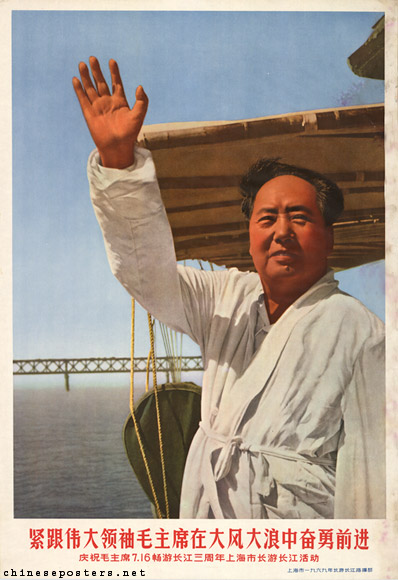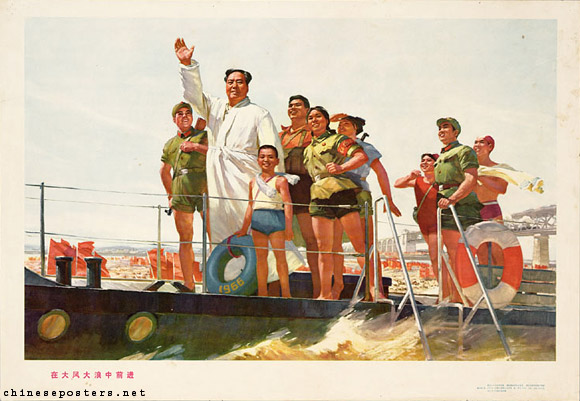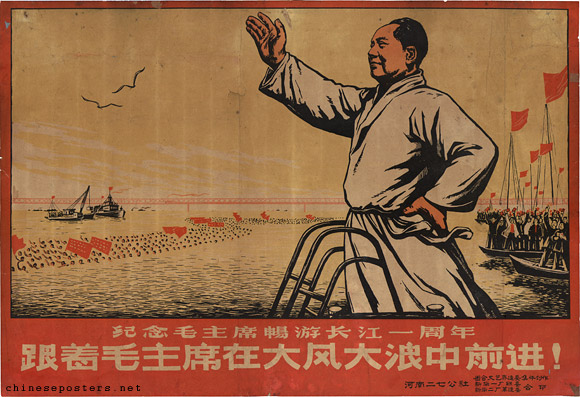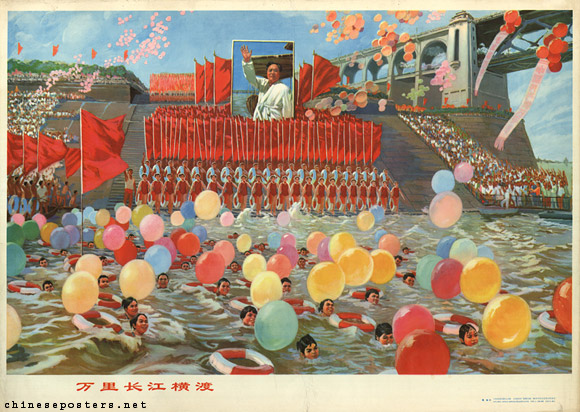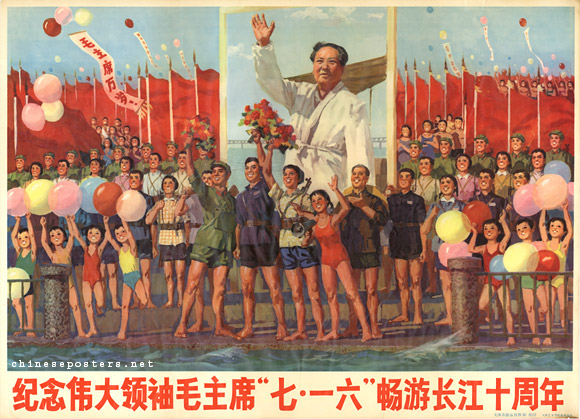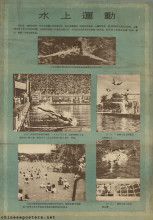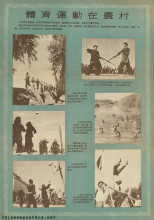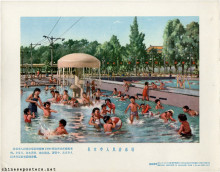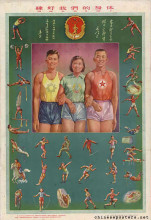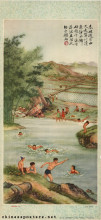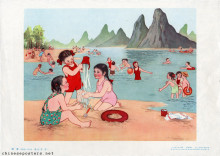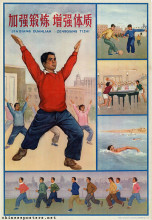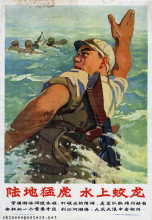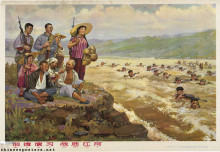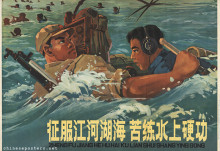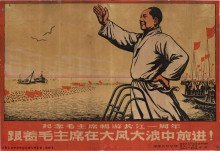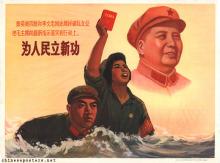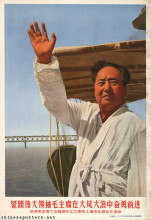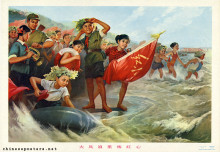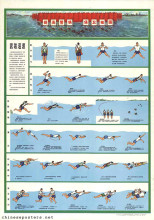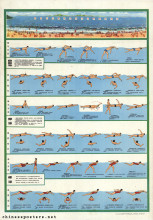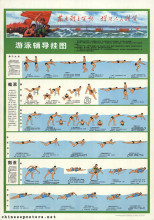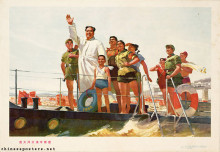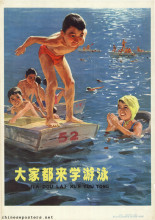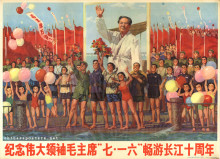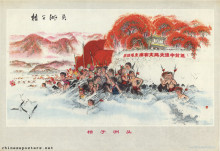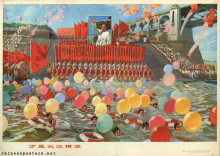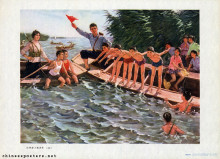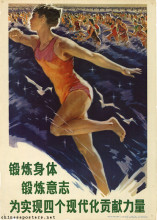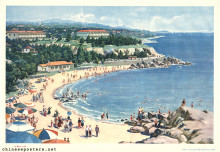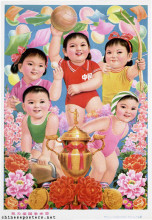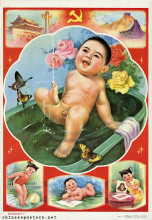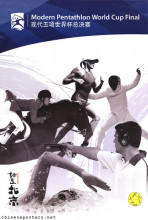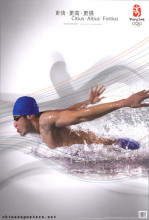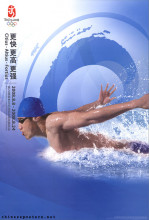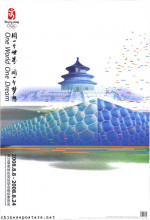One of Mao Zedong’s early articles, "A Study of Physical Culture" [体育之研究, Tiyu zhi yanjiu], published in the influential journal New Youth [新青年, Xin Qingnian] in 1917, was devoted to the benefits of regular exercise and swimming to make the Chinese people physically strong.
All his life, Mao would follow his own prescription and swim wherever he could. Moreover, Mao’s penchant for water made swimming an accepted physical activity for many Chinese. In 1956, Mao swam in the Yangzi (also called Yangtze and Chang Jiang or ‘Long River’) for the first time. It inspired him to compose the poem Youyong (游泳, Swimming], which turned the dip into a memorable feat.
Forging ahead in wind and waves, 1974
On 16 July 1966, a great Crossing-the-Yangzi event was organized in Wuhan to commemorate the event. Mao showed up to stress his support for this exercise and plopped down from his boat to float downstreams for over an hour. During his dip, he exchanged jokes with the masses and taught a woman how to perform the backstroke swim. The happening was covered extensively by the Chinese mass media. It was widely interpreted as a demonstration that Mao, although residing in Shanghai, far removed from the locus of power (Beijing), still was physically fit and able to continue to lead China on its revolutionary course. This played a major role in his bid to regain power during the Cultural Revolution.
Mao’s swim became a major yearly event of commemoration, giving thousands the opportunity to express their boundless devotion to the Chairman. They would jump enthusiastically in the water to do their bit. Not only in Wuhan, at the very spot where Mao had entered the waters, but also in the sea and in various rivers and lakes across the country. On the first anniversary, in 1967, there were 50,000 swimmers in lakes all over Beijing alone.
Crossing the 10,000 li Yangzi River, 1976
The last two posters shown here were published at the tenth anniversary in 1976, just a few weeks before Mao would die.
Xujun Eberlein, "Swimming with Mao", The Walrus, 12 July 2006
Alice de Jong, "The Strange Story of Chairman Mao’s Wonderful Gift", Reminiscences and Ruminations - China Information Anniversary Supplement 9:1 (1994), 48-54
Li Zhisui, The Private Life of Chairman Mao - The Memoirs of Mao’s Personal Physician (London: Random House, 1996)
